We just wanted to inform everyone that the BoulderCAST weather station is now installed and collecting data, all of which is available to our followers online!
 There are several weather stations we at BoulderCAST rely on within the city. One being the FAA station at Boulder Municipal Airport, just off of Valmont Rd near Foothills Pkwy (data HERE). However, this location is isolated, and consequentially doesn’t necessarily capture the “heat island” influences found within the city. This station also only reports to whole degrees Celsius, nearly 2 degrees Fahrenheit, which is rather coarse. The BoulderCAST station reports to a precision of 0.1 degrees Fahrenheit, by the way. The most reliable and representative station for Boulder is likely the one at the National Center for Atmospheric Research’s Foothills Laboratory, located near Pearl and 47th (data HERE). Coming in at a close second is the official climate station for Boulder off South Broadway, run by NOAA (but actually located at NIST). The climate station has a much longer historical archive of data, but again, is located on the very fringe of Boulder at the base of Green Mountain, and has very limited real-time, online accessibility.
There are several weather stations we at BoulderCAST rely on within the city. One being the FAA station at Boulder Municipal Airport, just off of Valmont Rd near Foothills Pkwy (data HERE). However, this location is isolated, and consequentially doesn’t necessarily capture the “heat island” influences found within the city. This station also only reports to whole degrees Celsius, nearly 2 degrees Fahrenheit, which is rather coarse. The BoulderCAST station reports to a precision of 0.1 degrees Fahrenheit, by the way. The most reliable and representative station for Boulder is likely the one at the National Center for Atmospheric Research’s Foothills Laboratory, located near Pearl and 47th (data HERE). Coming in at a close second is the official climate station for Boulder off South Broadway, run by NOAA (but actually located at NIST). The climate station has a much longer historical archive of data, but again, is located on the very fringe of Boulder at the base of Green Mountain, and has very limited real-time, online accessibility.
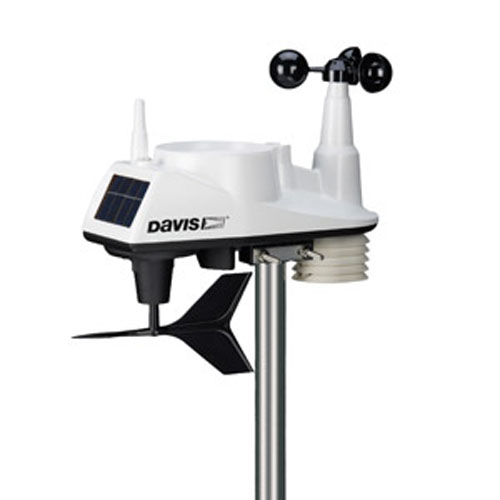 The BoulderCAST weather station fills a void in weather observations in Uptown Boulder. Located near the intersection of Broadway and Yarmouth Ave, it sits at an elevation of 5,555 feet. It currently measures temperature, humidity (dew point is also derived), wind speed, wind direction, barometric pressure, and rainfall amount. The station hardware is a Davis Vantage Vue all-in-one unit, while Cumulus holds down the fort on the software end.
The BoulderCAST weather station fills a void in weather observations in Uptown Boulder. Located near the intersection of Broadway and Yarmouth Ave, it sits at an elevation of 5,555 feet. It currently measures temperature, humidity (dew point is also derived), wind speed, wind direction, barometric pressure, and rainfall amount. The station hardware is a Davis Vantage Vue all-in-one unit, while Cumulus holds down the fort on the software end.
The data will be most accessible to you through Weather Underground, a weather website that hosts a network of private weather stations active across the world. This site is incredibly powerful, but offers no quality assurance on the data as stations are not monitored in any way. They could be uncalibrated, unreliable, and even indoors or right next to a dryer vent. The BoulderCAST station is installed in a proper location, calibrated, and is monitored by professionals with experience maintaining meteorological instruments. Our data updates in real-time and can be found here. The “current” heads-up display from Weather Underground is shown below. You can use the interactive map to zoom in and out to see nearby data, or animate the overlaid weather radar.
Scroll down on that page to find archived data in table or graph form. You can select any date or time period. Shown below is the data for June 24, 2015.
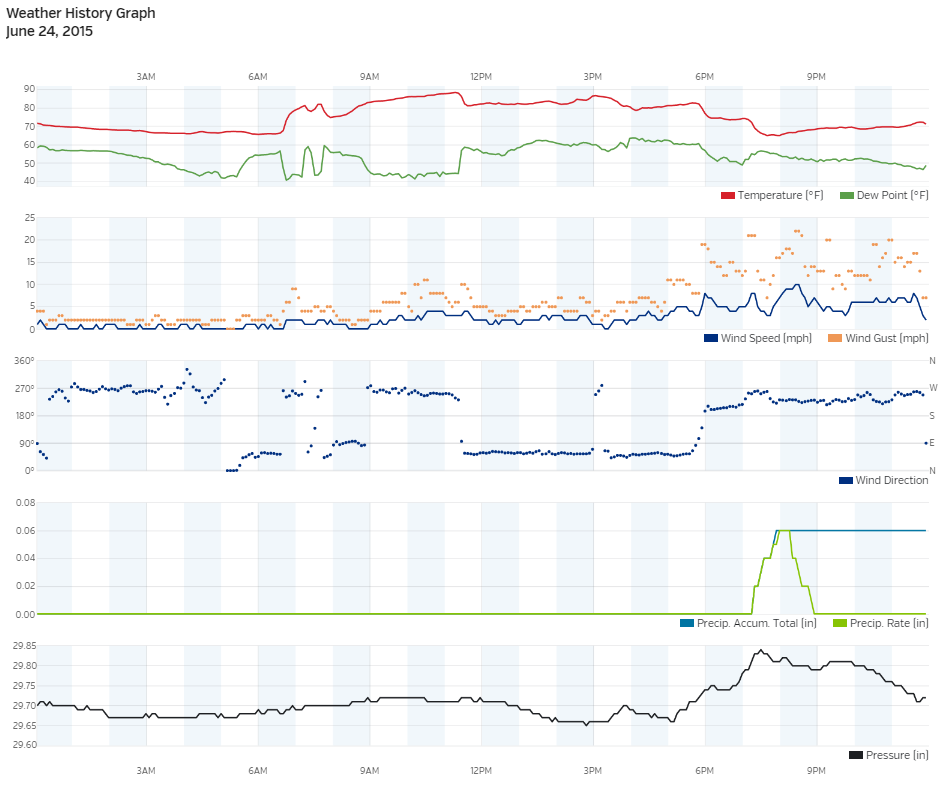
The “Current Conditions” widget at the top of the sidebar on every BoulderCAST page displays a quick glance of the current conditions at the BoulderCAST station. You can also access our Weather Underground page directly by clicking on the widget.
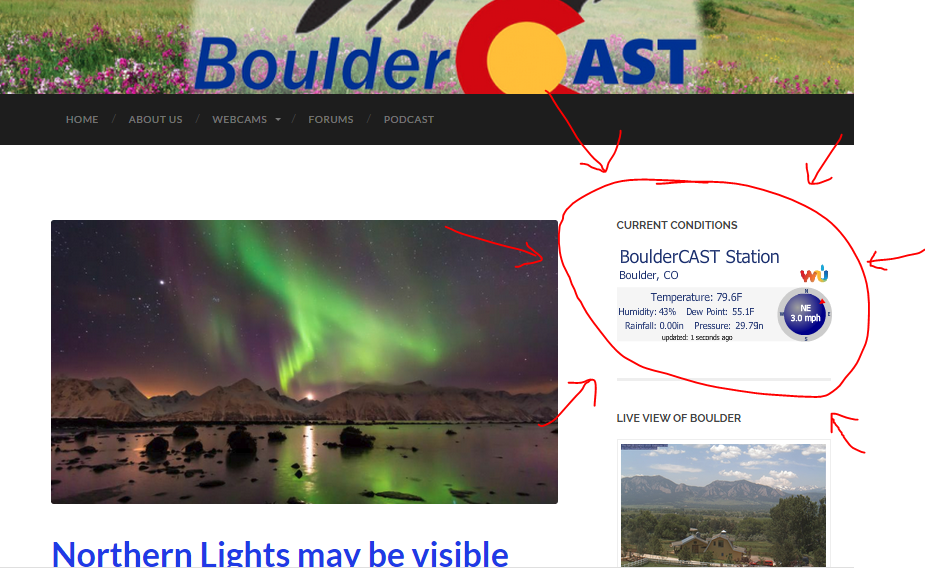
Another way to experience BoulderCAST weather data is through our in-house, less aesthetically-pleasing weather webpage, which be found by selecting Weather > Current Weather in the navigation bar at the top of any page.
Be sure to bookmark either or both of our weather station’s pages!
—
Remember, weather conditions in any city can vary drastically from one part of town to another. This is especially true for Boulder, resting at the foot of the mountains. Surely you have been out and about, walking or biking along one of the many multi-use paths, and experienced a noticeably drastic temperature, humidity, or wind change over a relatively short distance. Terrain-forced winds, moisture injected from the wetlands east of the city, land-use differences, and small-scale topographic features are among many factors that interact to drive these differences in atmospheric state across short distances. John Cassano, a professor of Atmospheric Science at CU, even published an article summarizing the changes he experienced and measured while biking in/near Boulder. The point is: a weather station a mile away may not be representative for your location, but if you have to choose one, choose BoulderCAST!
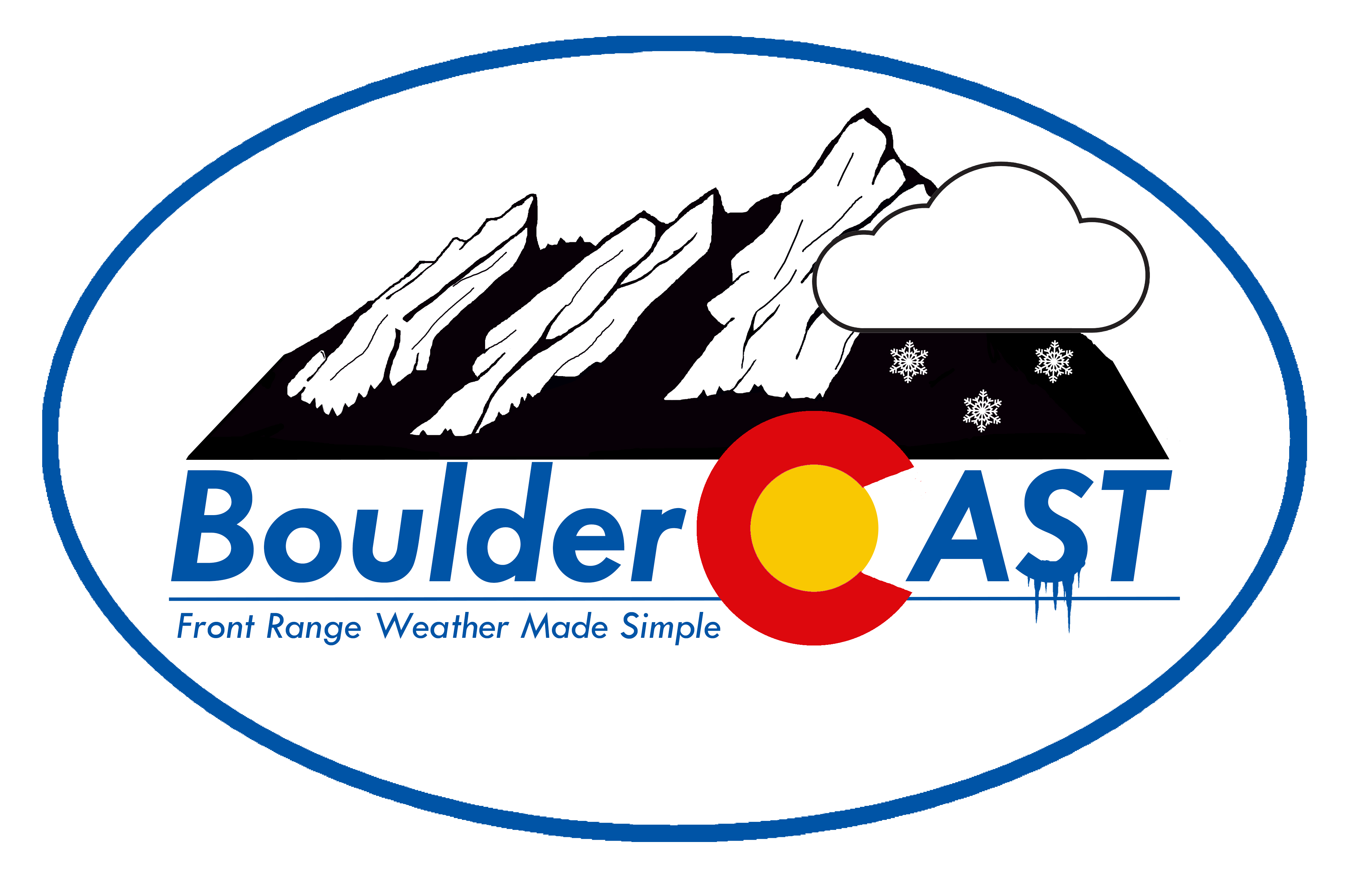
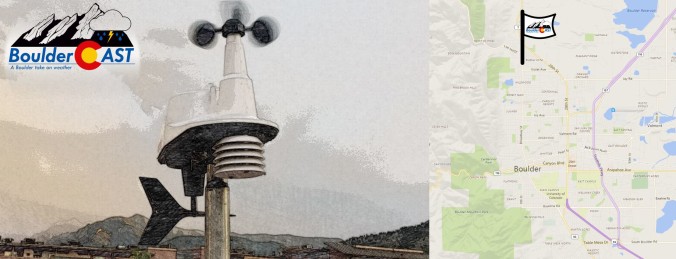
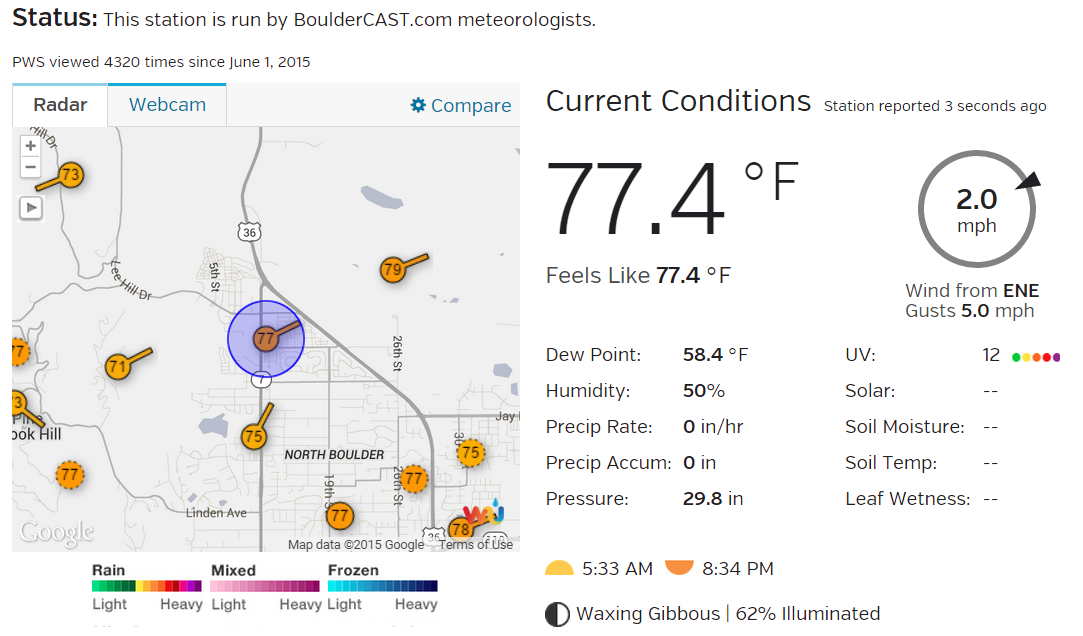
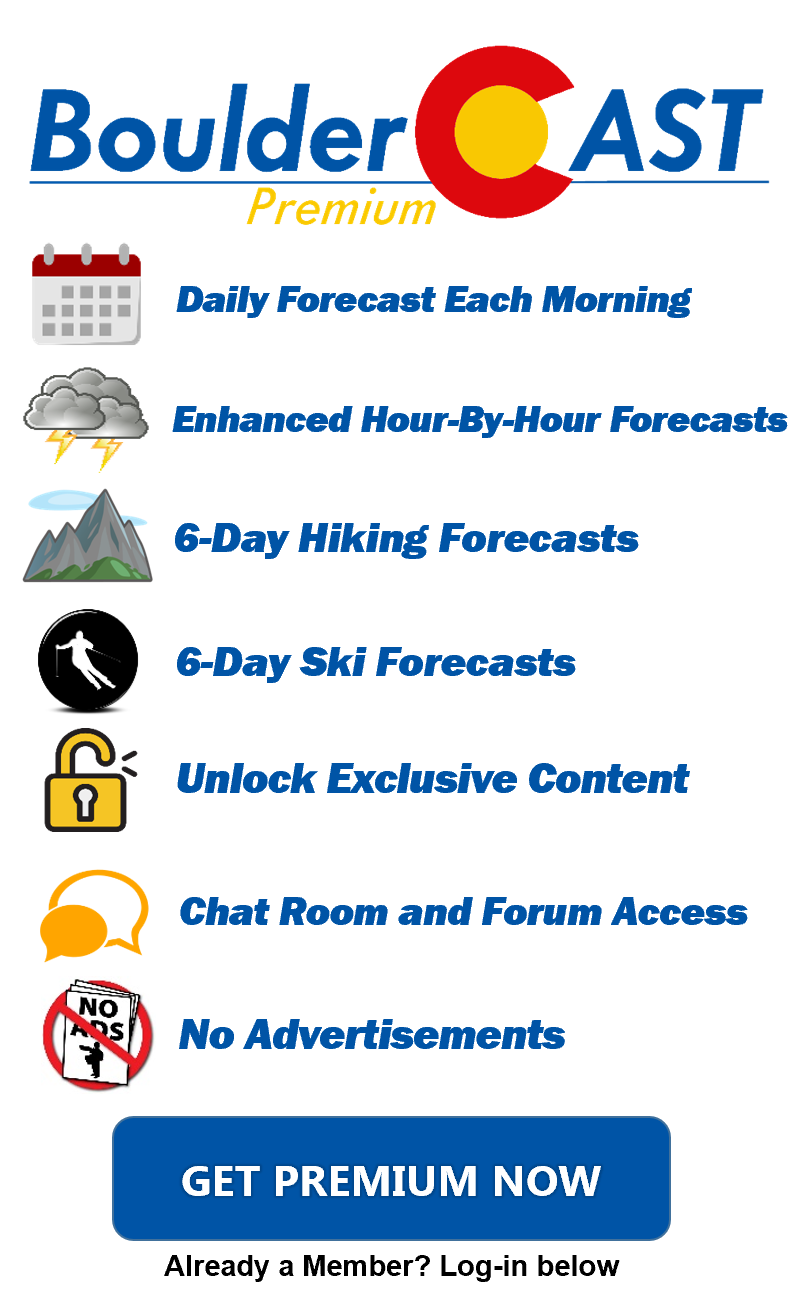
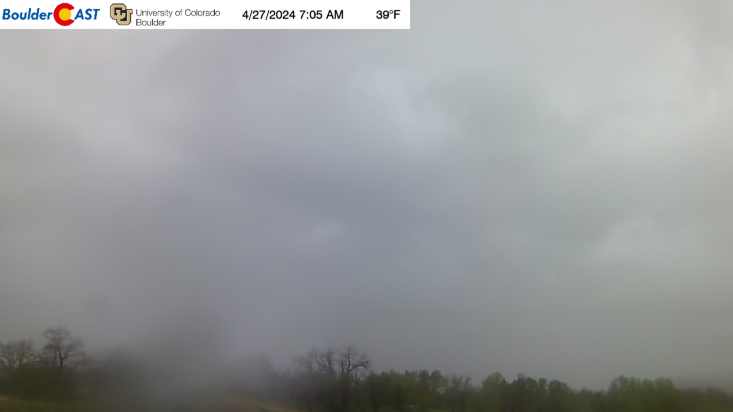
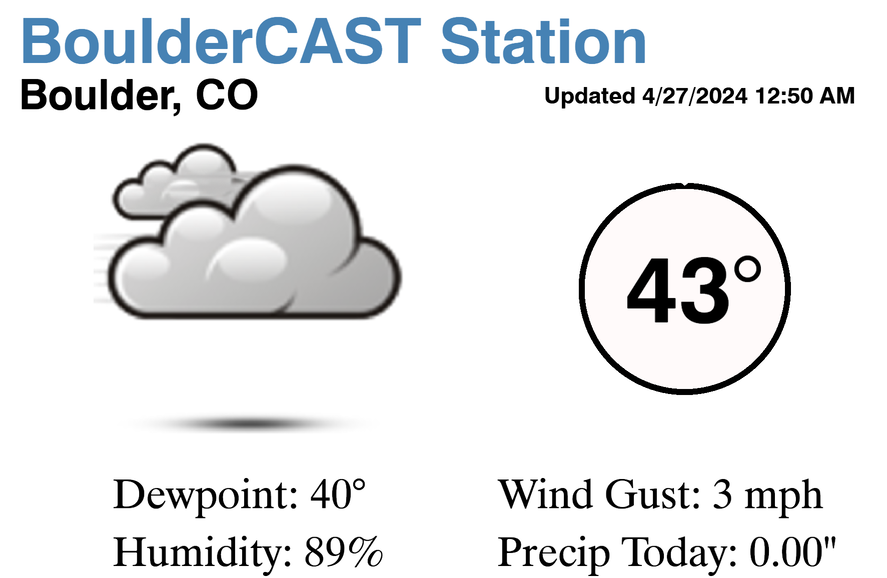
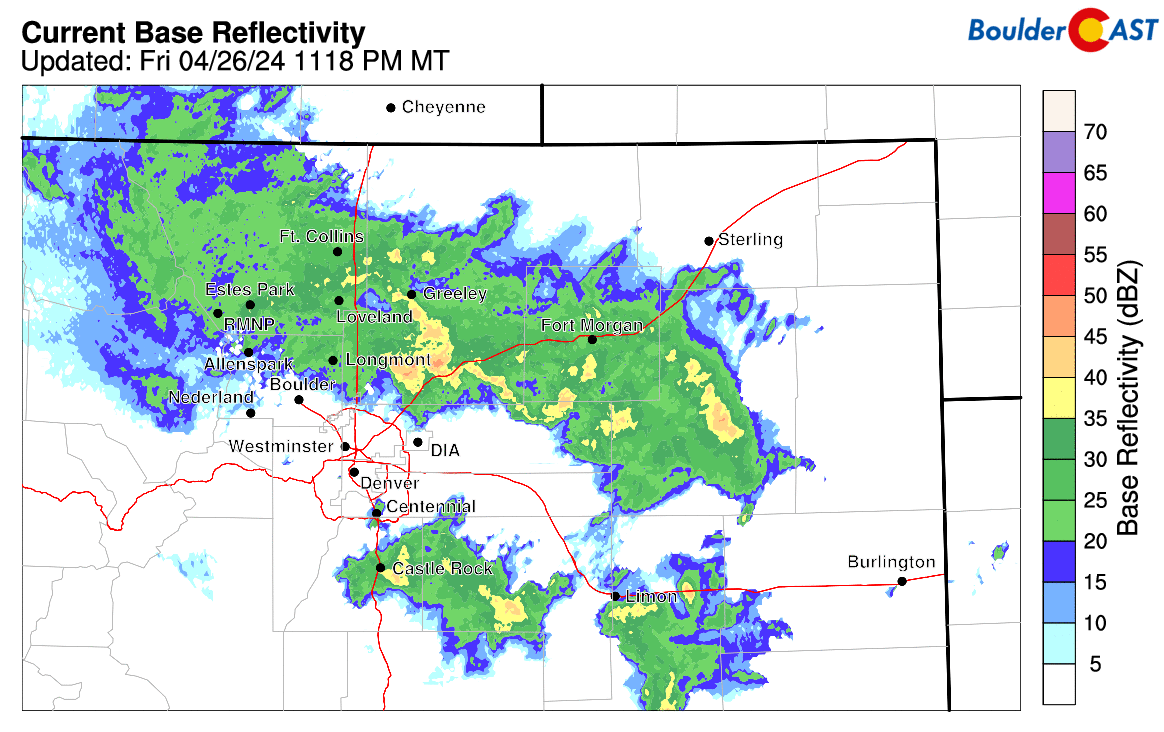

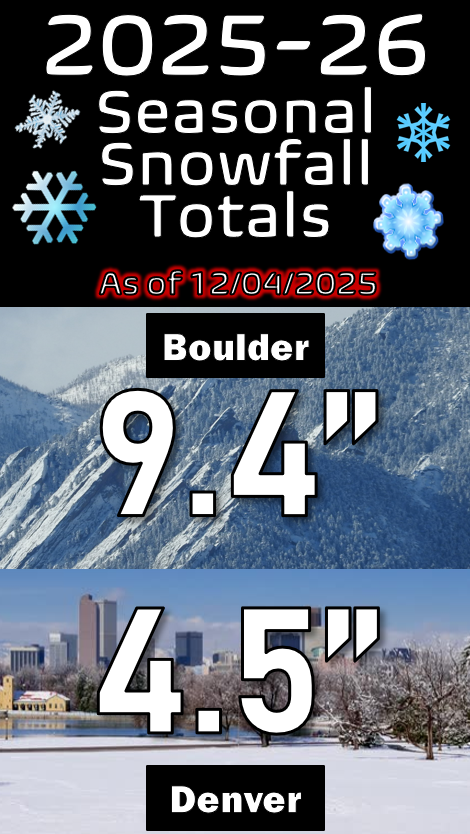
You must be logged in to post a comment.